Doctors and nurses are trained to be calm under pressure and keep their cool when lives are on the line. They witness pain, suffering and lives cut short, often on a daily basis. And when the shift is done, many are expected to go home to their own families with their emotions intact.
But even the most seasoned medical professionals have experienced cases that cut through the clinical detachment like a hot knife through butter: haunting and heartbreaking scenes and stories that will live with them for the rest of their lives.
Perhaps it's a "what if?" or a diagnosis that came way too late for an innocent, little girl. Maybe it involves the emotional weight of hearing a mother's blood-curdling screams after being told that both her twins didn't make it. It could be the sadness of witnessing an elderly person passing away with no one at their side, or the helplessness that lingers long after the room is empty. Whatever the reason, doctors and nurses are left with emotional scars that can't just be stitched up quickly in surgery.
Someone recently asked medical professionals, "What is the one case from your career that still haunts you to this day?" and some of the replies might leave you heartbroken. Others could send chills down your spine.
Bored Panda has put together a list of the top stories for you to scroll through while you ponder your own immortality. We also explore how nurses and doctors cope with the daily trauma that they face. You'll find that info between the images.
#1
My doctors answer would be:
27-year-old female, was previously never diagnosed with anything, not even a broken leg. Started to complaining about feeling wrong in her body, constantly constantly so tired, she could barely keep awake, while she was cooking dinner. Her hair is falling out, she got black dots flashing for her eyes, and she’s constantly feeling a bit unwell, like in the beginning of a cold. Besides from this, she feels nauseous.
The patient got too small kids at home.
The patient have now contacted the doctor numerous times, and walked out the clinic with the words “ are you sure this is not something in your head?” you’re absolutely fine.
Fast forward a couple of months, the patient returns with a lump in her breast.
She gets an ultra scan. Again, she’s told nothing wrong.
At this time the patient is starting to feel very embarrassed when she calls her doctor, who is visibly irritated at her.
Now it’s nine months since she had the ultra scan, and she now feels a new lump in her breast.
She returns to the doctor, and demands to go to another clinic.
Six days after, she lays on the table, getting scanned and so that she got stage four breast cancer, three lumps in her breast, and it’s spread to the lymph nodes.
Luckily, I am still here today. 10 years has passed.
Thanks to myself, and my stubbornness!
If I did not return to the doctor again and again, my children would not have known me.
Sorry for the incorrect spelling or grammar, English is my second language.
Nurses often have more contact with patients than doctors. So it's no surprise that they sometimes get to know them well, especially in cases of prolonged hospital admission or ongoing illnesses.
The more a nurse sees a patient, the deeper the bond between them can grow. And when that patient takes their last breath, it can be heartbreaking for the person who'd been helping to care for them.
A 2021 study published in the National Library of Medicine notes that while seeing people passing on is an inevitable part of a nurse's job, it doesn't make it any easier to witness. "There is no doubt that, despite an ability of self-control and a calm approach to the issue, there are still some emotions the nurses need to work through," reads "The death of a patient is considered one of the professional situations in nursing," reads the paper.
160 nurses took part in the Polish study, aimed at evaluating and analyzing the feelings and emotions which accompany nurses during their work when they face the passing on of patients.
Among the participants, more than half said they experienced high levels of stress. Many admitted to feeling a sense of helplessness and abandonment, anger and sorrow.
#2
When I worked in the ICU in my 20’s, there was a 32 year old mom of three with bone cancer that she had been fighting for a while. She was dying, so she had gone to Mexico for some experimental treatment, which did nothing and she came back worse. Her family was very religious and was continually pressuring her to fight because “it would be sinful to give up, and what would her daughters think that she didn’t do everything to stay with them?!?” She was in so much pain, the amount of narcotics she took in an hour would have killed me if I took it over the span of a day. The cancer was so bad that you could feel the tumors when you touched her and her skin would sometimes break open and bleed. She was in and out of the unit for about a year, and her family (husband and parents) was pressuring her to keep going with futile treatment. She was alone most of the time with us, in horrible pain, while her family visited in between living their lives. She was offered support to talk with her family if she wanted to change her mind about her care, but she didn’t want to go against them. Her husband had flown states away to attend a religious conference and her parents were out of town with her kids when she started imminently dying. The family tried to get home in time but she died with only us nurses at her side. When I turned 33, I thought about how I’m older than she ever got to be. I’m in my 40’s now and am still thinking of her. The way she died was cruel and it didn’t have to be.
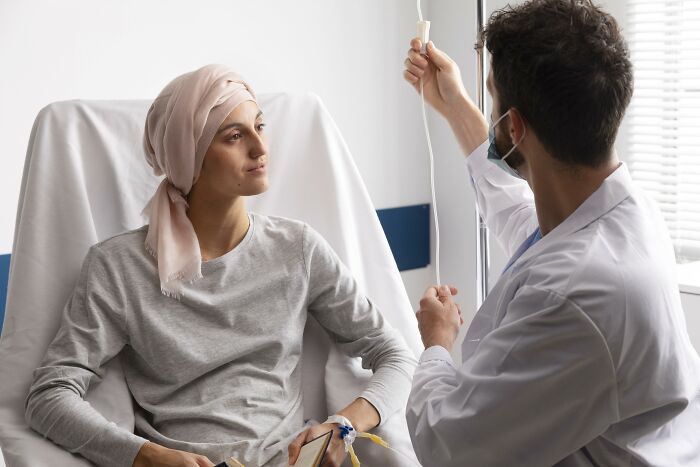
Image credits: Friedpina
#3
I have a few that haunt me in the horrible way, so how about one that haunts me in the lol wtf way.
So this older lady comes in with a general complaint of illness. Nurse gets her sat down in the room and starts asking her questions. The lady says, "Well, I have branches growing out of me down there."
Long silence. The nurse asks some clarifying questions and eventually has to type into the medical record, "chief complaint, branches growing out of v****a."
My friend, the NP, went in and eventually found out that this woman had a vaginal prolapse several weeks ago, and one of her neighbors, upon hearing of her woes, suggested stuffing some potatoes up into the hole as some sort of folk remedy.
And there those potatoes had remained for weeks in a nice dark, damp location, which meant they obviously started sprouting. Thus the "branches."
Potatoes were removed, and she was given a non-potato treatment for vaginal prolapse and told not to stuff potatoes up the nethers again.

Image credits: MissionApostate
Mortality is unavoidable in the working environment of nurses. “Every [one] is a painful event but, in a way, it is inscribed in human existence," notes the paper. "Nurses often accompany a d*ying person and they are required to carry out their duties in a professional manner when dealing with such a patient."
11% of the nurses in the study group admitted that they reacted very emotionally to when a patient passes on, while nearly 56% of the respondents stated that they tried to control their emotions. 33% said that they kept their distance.
#4
A mid 20s guy who was dying from the flu. Probably had only a couple more days left, we had him on every intervention there is. He was type one diabetic, but was unable to afford insulin. He was buying it from a veterinary supply store (the cheapest he could find) and still only using it about every 3 days when his sugars would get to the over 300 range.
That guy would probably still be alive today if we had reasonable health insurance in this country and could afford to keep his diabetes in check. It really was the turning point in my prioritization of universal Healthcare in a political candidate.
#5
I'm a dentist, so not a real doctor, but...
There comes a patient with swelling and pain on the lower jaw on a place with no teeth. I examine him, make an incision, drain the pus, antibiotic and OPG (orthopantomogram). There's this impacted wisdom tooth - we extract it, everything fine. 9 days later he calls me, he's still bleeding (didn't even mention it for the whole 9 days!), heard a pop. Turns out he fractured his mandible. So CBCT (scanner) and something's fishy. I get biopsy - tumor. Metastatic from his lungs (according to the doctors), his whole body was lit up on the PET scan.
I guess he has a few months to live. I feel pretty bad. There's nothing I could have done but being part of the whole process was really stressful. That happened last month, so it's still very quite fresh.

Image credits: BGDaemon
The research also found that nurses with long service in work manage their emotions best.
"Respondents with the shortest length of service found it very hard to cope... and they experienced a particularly high level of sense of powerlessness, the feeling that becomes less intensive the longer the person works in the profession," notes the paper.
Doctors and nurses are expected to be able to emotionally detach and quickly move onto the next patient. But that's sometimes easier said than done.
"Sadly, that's the reality in the trauma bay and ICU settings," reveals Dr. Brenda M. Schiltz, a pediatric ICU specialist at Mayo Clinic in Minnesota. "You still have to carry forward. The next patient deserves your full compassion and thoughtfulness just as the patient who is deceased. That's not easy to do, and I had to learn how to do that well."
#6
I was a nurse at an assisted living facility during covid. We had the whole place locked down for over two years (no family or visitors allowed). One resident in particular was a ray of sunshine and adored by all staff and residents alike. She was slightly delayed mentally, not a ton, like lived in a group home most of her life, but mostly for reasons like needing help paying bills and applying for jobs and whatnot. This meant that she was probably the youngest one there (late 60s) and physically in great health. Her childlike innocence and humor really kept the place upbeat. Then we hit the covid lock downs and she was absolutely miserable and cried a lot. Every day, she would ask when she would get to see her family. It was heartbreaking to have to tell her everytime that it would be awhile yet. She went through the whole lock down without ever leaving (except for occasional appointments) or seeing her family.
The day the lockdown lifted, she was the happiest person I've ever seen. She could finally leave to see her family. She got dressed up for the first time since the lockdown started, and made sure everyone in the facility, including residents, knew that she was finally going to go have dinner with her family. We sent her off with a smile.
The next day, we found out that at the very dinner that she waited two years for, she had choked and passed away. The facility felt lifeless for awhile after that.

Image credits: Present_Ride_3845
"It's not just the deceased patient's family who grieves — it's the health care team and everyone working in the area when a person d*es," says Cathy A. Dudley, a specialist in Decedent Affairs at Mayo Clinic's campus in Rochester, Minnesota.
Schiltz adds that in the past, it was frowned upon for medical professionals to take a moment, or step away, after a patient takes their last breath. But things have changed.
"There's been a culture shift... It used to be about just powering through, and there was stigma that you were weak if you couldn't," the expert reveals. "Now the culture has moved to thinking that if you can't perform your duties, stepping aside is the best thing for you as a professional and for your patients at that time."
#7
I had a patient whom I nursed for 11 months. He had cancer that eventually spread. He was in the same room, the same bed, for 11 months. I was his nurse 3 or 4 days a week for those 11 months. I got to know him, his wife, his children.
He finally died at about one day at about 10am. It took me and his wife two hours to pack up all the things he had accumulated in that room over those 11 months. It took another hour for housekeeping to clean his room.
An hour before my shift ended, I admitted a new patient into his room.
That was the day I finally understood what happens after we die. We clean the bed and admit a new patient. .

Image credits: Thenumberthirtyseven
#8
I was a labor and delivery nurse. Called to the ER stat. Some rich guy driving his laboring wife to the hospital like a bat out of hell in a Porsche. He was driving at least 100 mph when he tangled with a semi truck. The woman was killed on impact, and the infant survived but was in serious distress. Emergency c-section in ER to save baby. He did survive with severe impairments due to hypoxia. The worst part came with the woman's post mortem. She was dilated to 2. He had all the time in the world to get her to the hospital driving like a normal human.

Image credits: Lglo0301
Schiltz adds that many in the medical community are still grappling with how to react in the moments after a patient passes away.
"We're still combatting the 'ignore your emotional response' mindset and trying to find the right balance of taking a moment to process what just happened, have a breather and then set it aside in order to complete our shifts," she says. "Yet there can be times when you just can't go on to the next patient."
Dudley agrees. "People need to find their coping mechanisms to come to grips with the inability to save the patient, especially in trauma," she told MayoClinic.
#9
2 cases tied together, same family. A little girl, G, was unrestrained in the front seat of mom’s car when it crashed. Mom was found to be at fault. G broke her neck. Paralyzed neck down. Trach, vent, feeding tube, straight cath, yet still alert, talking, learning, growing. 2 years later a boy, K, was unrestrained in the front seat of his mother’s car when it crashed. Mom was found to be at fault. K broke his neck, paralyzed from the neck down. Trach, vent, feeding tube, still alert, talking, learning, growing. These 2 moms are sisters that live in the same town. I met the boy as an infant when i was caring for the girl. I am angry about the first tragedy, i am beyond f-ing disgusted about the second.
#10
Worked in developing country. Only surgeon in the hospital. Operated on a 6 month old who had been r***d. I will never forget that.
Took my time. Arrived too late back to the ER to save the rapist who had been attacked by the family. Not too sorry about that.
#11
Christmas Eve night in ER . EMS calls with 2 school age burn victims. Arrived with 7yo twins that fell asleep under the Christmas tree waiting for Santa. Tree caught fire. Resuscitation was futile. Their pj's had melted into what little flesh there was left. I can still hear that mother's scream of despair and grief. That was 17 years ago and I think about them every year.
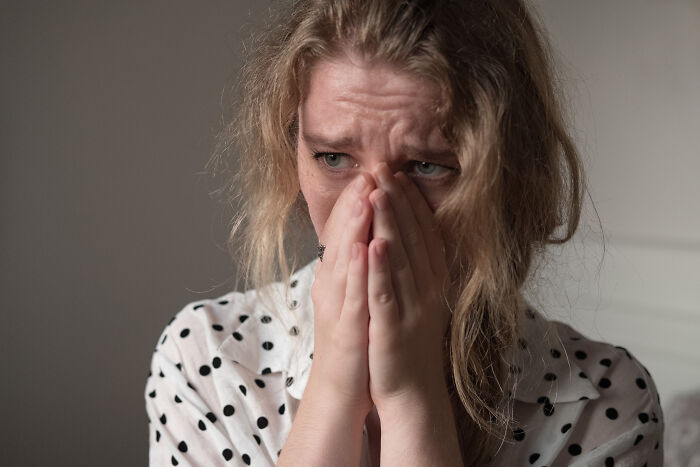
Image credits: AmbassadorSad1157
Schiltz says that while medical professionals may attempt to move on after a patient flatlines, the emotions surrounding such events can go home with them. And therefore, it's important to address negative events at work.
"Patients d*e — that's part of what happens in health care. We witness suffering, critical illness and health deteriorate to the end of life," explains the expert. "However, you have to leave it at work."
#12
I don’t know about haunting me for life but here’s one I’ve never forgotten. I worked as a CNA in a dementia unit.We had a wheelchair bound gentleman who started pulling the fire alarm set into the wall of the hallway by his room. Because this was a nursing home, every time that alarm was set off the fire department responded… quickly. Our gentleman started pulling it several times a day and often a few times in the evening as well, all day, every day. It didn’t take long for the fire department to lose any sense of humor they might have had about the situation and start leveling fines on the facility. Progressively bigger ones as time passed and our friend continued his trick in spite of numerous attempts to stop him. The staff was written up and upper management was going apes**t.We just didn’t have enough staff to have someone constantly monitor a single patient. Finally, someone thought to ask this gentleman WHY he was pulling the fire alarm. His reply was astonishing… he pointed to the dammed thing and very reasonably explained “ it says PULL “. It did, in big red letters three inches high. A simple piece of masking tape over the instructive word solved a huge problem. People with dementia aren’t exactly themselves anymore but they’re certainly far from stupid.
#13
Haunting (as in I'll carry this with me for the rest of my career), but in a good way:
When I was a medical student, I had a patient come in with a full blown stroke - hemiplegia, aphasia, facial droop, etc. The stroke fellow I was with showed me how to draw up and push tPA (a "clot buster" medication), and allowed me to administer the d**g.
Fast forward a few days, and this patient had recovered nearly all of their function - some residual weakness, but fully able to converse and articulate themselves. As she was getting discharged, she looked at me and said - "You know what? You've been coming in and seeing me every morning for the past few days. You were the first face I saw in the emergency room, and now you're the last face I'm seeing as I get ready to leave. I'll never forget you." She gave me the sweetest, most heartfelt hug.
She's probably the reason why I'm happy and content going into the specialty I'm going into.
#14
NICU nurse.
22 weeks is the age of viability (some places, including ours, have tried 21 weeks and had a success here and there) but this kid was a couple days old and a 23 weeker. Was stable and without any drips, intubated on a special vent for micros, and when I got report just slightly had oxygen a little out of range.
Time of d**th was called 10 hours later on the nose. Kid had gone massively septic and wouldn’t respond to pressors, fluid, antibiotics, etc. I had heard of sepsis in newborns that can be quick like that from older nurses but I hadn’t seen it yet.
We’d gotten the baby baptized per family wishes about 15 mins before the end came, despite the fact we still were doing everything to prevent it. I broke down after we called it and gave the kid to mom to spend the last few moments.
Came back to bedside a few mins later after I got my c**p together (shoutout to my coworkers who held it down so I could step away) and cried again when I saw him alone in the isolette. I played him some lullabies and dressed him in a tiny crochet blanket and hat and brought him to a private room with his parents.
I’ll never forget this child. He’s the only one who has passed that was MY patient, my assignment for the shift. And I struggled for months with anxiety afterwards any time I had a patient with lower oxygen or blood pressure because I had come to the cruel realization that sometimes your best just isn’t good enough.

Image credits: Ecstatic_Letter_5003
She revealed that a chaplain friend of hers treats work like a backpack. "He uses this backpack to carry or help shoulder people's loads, bearing heaviness with them. He said that when he leaves work, he envisions removing the backpack and then goes home."
Schiltz believes that doctors and nurses need to be able to "remove the backpack" to fully participate in their home lives, adding that "there's a sacred time and space at home and at work."
#15
My ICU patient who was brain dead, waiting for the rest of her family to join so we could extubate. Every time her husband would come to her side she would lift her hands up off the bed without the average posturing forms in the most unusual way. I couldn’t recreate the responses when I tried and had a terrible feeling about him. Found out he was charged with the m*rder.

Image credits: PumbaKahula
#16
Nurse, had too many to count the worst ever
1. 2 year old who had been beaten within an inch of their life and dumped by someone who ran away afterwards and provided no info, survived but catastrophic life altering brain injury.
2. 16yo with fatigue studying for exams turns out they had liver cancer that metastasised to bones and lungs, died 3 weeks later terrified during the process.
3. Spontaneous second trimester m*******age in the toilets while I was in there with her.
4. Voluntary assisted dying patient I cared for as a new graduate nurse, looked after them for 6 weeks before they made the call to take the medication.
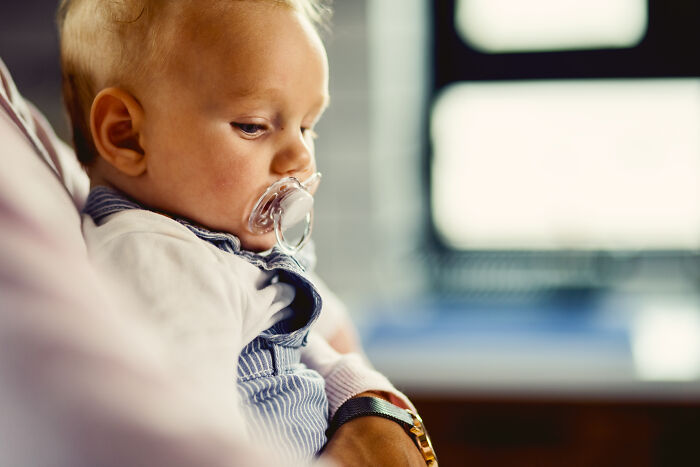
Image credits: SoylatteRN
#17
Child a***e, shaken baby cases, “the I just left my baby with this guy I’ve been dating for 3 days” scenarios. Once there was clearly a boot print where the baby had been stomped, they didn’t make it…..those haunt me and at one point in my career I started drinking heavily to cope. After almost 30 years I had to step back from a level 1 trauma center and do routine things. I stuck it out longer than most but it eventually got too much to bear.
#18
New born baby with multiple chromosomal abnormalities that were not compatible with life. Palliative care was chosen and baby lived just short of 2 weeks. This was all very sad. But what sticks with me is that the baby’s mother was a 15 year old girl who had been r***d and impregnated by her own father. Just horrible all around.
#19
We had an old guy who fell at home and was laying there a few days before someone found him. No family, no living will or advanced directives that anybody could find. He was covered in pressure sores from being on the floor when he came in. His teeth were very badly rotten and then he lost a few during intubation. His mouth was a bloody gory mess. Definitely contributed to his poor nutritional status which made his skin so weak. Anyway he was severely septic and in respiratory failure, and he had nobody to speak for him. He was trying to rip everything out so his hands were in restraints. He was lucid enough to resist being cleaned and turned and to look absolutely miserable and in pain at all times. Ive never seen a persons mouth so wide open for so long. We have to do oral care every four hours to prevent pneumonia and he would shake so hard from the pain no matter how gentle we were. His sores weren’t healing despite being on a special bed and being immobile made him swell and weep fluid from everywhere. Eventually he died. I think about him a lot. This poor old guy who fell at home and then spent his last weeks tied to a bed being tortured by his caregivers because he had no family or documents to guide his care. It was obvious he wanted to be palliative but he couldn’t communicate and there was no legal way to deescalate care. He had a coworker who visited at first but he couldn’t handle it anymore and stopped showing up, I can’t even blame him.
If you or your loved ones have any medical care documents like a DNR or otherwise, please put a copy on the fridge in a labeled envelope. EMTs will always look there for such things and if they don’t find them then having them doesn’t matter. .

Image credits: StevenAssantisFoot
#20
MH worker: worked with an adult who’s “parents” tortured her as a child. Like, literally physically and s*xually t*rtured her. She was impregnated several times by family members, and beaten until she m***arried, all by the age of 15. She managed to run away but then experienced homelessness and the traumas that come with that.
I am in the trauma field and I work with many others with similar stories. I see some of the darkest corners of humanity on a daily basis. I love a quote from Mr. Rogers that says “when something scared me, my mom would tell me to look for the helpers. There are always people who are helping.” It helps keep me sane to know that, even though humanity can be dark, there are people willing to help.
Edit to add: many folks I work with now are doing exceptionally well. They have homes, loving families of their own, and treatment that is working for them. That is also what keeps me hopeful.
#21
I'm not a nurse or Dr but I'm a phlebotomist at a hospital that has a lot of psych floors and the ER is like 75% psych related. D**g o*****ses (intentional s*****e attempts and accidental o*****ses), mental health emergencies, drunk/high patients, s*****e attempts, psychotic episodes, self harm, etc. I spend a lot of time on the weekends and on overnight shifts in the ER.
One day a patient came in, he was from an adult group home. He had COPD and tried to take his own life by overdosing on lithium. It completely f****d his neurological system. He was in so much pain but couldn't verbalize it, couldn't stop moving and shaking, was so confused and scared. I was there to draw his blood while his lungs were being suctioned and he was absolutely panicking. Trying to rip it out of his mouth, trying to rip out his IV. He had to be restrained. It was terrifying and heartbreaking to watch.
Had another o******e once that stuck with me for a long time. She was so young and no one knew what she took, she wasn't found right away. A family member had called for a welfare check hours after she took whatever she took. She was awake but couldn't talk despite clearly trying. I was only there for about 20 mins while they worked on her and I waited to get blood work, and then another 10 or 15 shortly after when I came back, and her condition deteriorated rapidly. Bruises started appearing on her all over, her limbs started turning purple. They put a catheter in her and her urine changed from normal to straight blood. It looked like her kidneys or liver was shutting down rapidly. They tried to sedate her but it didn't work. Her body was shaking uncontrollably like she had neurological damage and she kept trying to tell everyone something but couldn't get actual words out, and looked so scared. Her blood was flowing in such a weird way once I got the blood work, I've never seen blood flow like that before.
They had to intubate her without the sedation working and I can only imagine how scary and painful it was for her. The only words she got out clearly was the most pained "oh my god". It gave me nightmares for weeks and I broke down crying on the drive home later that day.
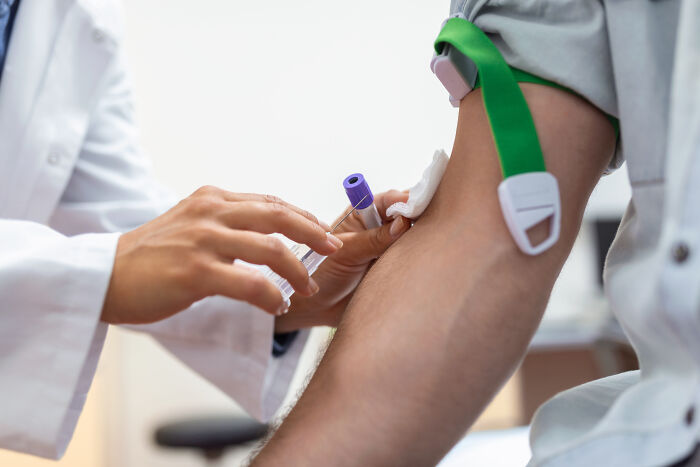
Image credits: Ordinary_Cattle
#22
During Covid times, I had a patient in the ICU with very bad pneumonia not caused by Covid. She needed ECMO, but our hospital could not support it at the time, and all other hospitals were too full to accept a transfer. We did everything we could for her, but on my first assessment one day, I found her pupil blown. Stat CT showed a massive stroke. I was in my early 30s and she was exactly 1 month younger than me. I remember watching her husband and mom come to the bedside and cry over her, and suddenly I saw myself in the bed and my husband and mom in the room. They made the decision to transition to comfort care, and I watched her die. I’ll never forget her. She was one of the victims of Covid that never even had the disease.
#23
I gut came into my ER with an "eye infection." He was a hermit, living under a bridge and was not able to give me a good history. He just said it had been "leaking pus" for a while. I asked him to remove his homemade bandage and he revealed a probable squamous cell cancer. It had eaten all of the soft tissue of the lids. I was looking at the shriveled grape of his deflated globe sitting on the bare, eroded and necrotic bones of his orbit.

Image credits: New_Section_9374
#24
Man,there are so many.
I work in obgyn and a relatively fresh case is a 35yo mum with 2 kids who was pregnant with her 3rd. She'd had long term reflux and vomiting, had an endoscopy the year before that was normal. When she gets pregnant, the vomiting gets do bad she can't eat anything and she's losing weight.
Initially it is treated as just severe morning sickness...but then someone does a scan and they find a thickening in her top stomach sphincter.
She gets a biopsy, and it's cancer. A rare, aggressive one.
She has to make the choice to have chemo while pregnant and chance extreme preterm birth, after which she will likely die because her prognosis is so poor, leaving her husband with two kids and a third extreme premmie.
She chooses to terminate.
The kicker?
On her scope the year before there had been cancer on a biopsy. Nobody had followed up the results.
#25
IM/PEDS still in training, 24h in the PICU, about 10pm we get a 5yo patient not seen for 17 minutes by parents found at the bottom of the in ground family pool. The patient was revived but did end up dying days later. Get home next morning and my wife and kids are swimming in the neighbors pool. Too tired and too much for me just broke down. It still bothers me and that was a decade ago. It’s always going to be the dead kids but that is the one that gets me the worst.
#26
Not a doctor but a radiation therapist. One of my patients was a 6 year old nonverbal autistic boy with leukemia. He had to be sedated for a procedure and panicked when the anesthesiologist approached him with a needle. After several moments of struggling against her, she was able to sedate him and he slumped over in his wheelchair. His father lifted his limp body from the chair and tearfully carried him to the table, wordlessly crying as he looked at his unconscious son. I will never forget the look of absolute despair and defeat on that man's face. As the little boy looked like he was dead, I just knew that this man was thinking that he might be seeing a heartbreaking preview of the future.
#27
I’m an OR nurse. Young woman 20 yo came in with ruptured spleen. She was Jehovah witness and she and her family refused blood products. The surgeon tried so hard to fix her spleen before she ran out of blood. They pumped her so full of normal saline and lactated ringers that eventually the bleeding stopped and it was all just fluid. It was so hard to watch a young woman die before my eyes and know she could’ve been saved. This was 20 years ago. I think about it all the time.
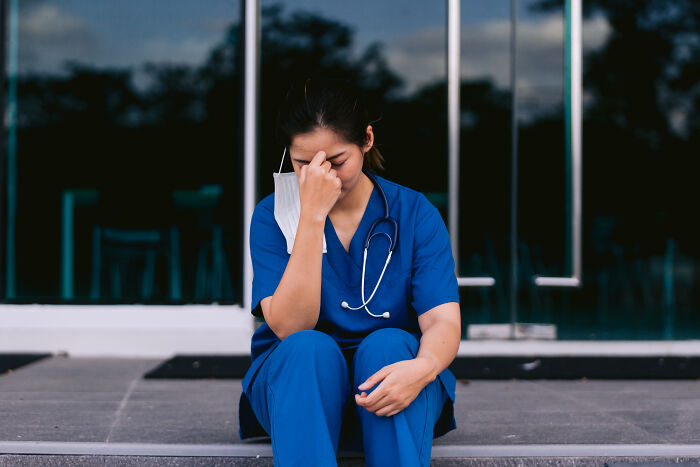
Image credits: NeeOfChalais
#28
A woman who was a quadriplegic from infecting her cervical arteries and trached. Her son had her conserved and he was the one who had say whether she had any procedures/code status. Every day I took care of her she would mouth “let me die” over and over again. The son would tell us she didn’t know what she was saying and so we kept doing invasive procedures, dialysis, and multiple surgeries. It was horrible and I ended up leaving for a desk job because of how bad I felt. I’ll never ever forget the look on her face mouthing those words.
#29
RN here. I worked on an oncology floor and got report on a comfort care patient who was actively dying. On assessment he was showing clear signs of distress, and I was surprised to see he didn’t have a continuous pain pump as most of our comfort care people would have. As I was wrapping the assessment with plans to contact the MD for pain meds, he reached out to me, like for a hug. I only stayed with him briefly because I wanted to get him pain relief asap. I didn’t think d**th was imminent; I thought I’d be caring for him all shift. In the 30 minutes it took me to go find a provider and get orders, this man died all alone. This was over a decade ago and I still wish I had just stayed by his side, given him a hug, and made sure he didn’t die alone.
#30
PICU nurse here. Had a kid, 10 yrs old or so, who was properly restrained, but had fallen asleep in the back seat, his neck relaxed and his head tilted forward like kids do when they fall asleep sitting up. The car was t-boned and his head whiplashed in a way that “internally decapitated” him—neck broke, spine severed. EMS got there early enough to intubate him and keep him alive. I had him his second day in the unit when they knew the extent of his injuries. He had no sedation, no pain meds, not a single drip infusing to keep him intubated because he wasn’t going to be able to self-extubate because he was completely paralyzed and without feeling from the base of his skull down. But the kid’s brain was 100% ok. So there’s this kid, intubated, aware, and his eyes communicated how f*****g terrified he was. This is MY biggest fear—to be paralyzed and intubated and 100% aware of everything but unable to move or communicate in any way. He had to blink once for no, twice for yes, but that doesn’t come close to conveying everything he wanted to say, ask, or do.
#31
During my psych rotation in med school we admitted a woman whose family contacted police because they were concerned that she was s******l. There were enough concerning signs that she was a danger to herself that she was involuntarily admitted to the psych hospital.
She was there for three weeks, the whole time denying that she wanted to harm herself. I saw her almost every day while she was there. After three weeks there wasn’t enough medico-legally to keep her involuntarily committed any longer, although her family was still concerned.
Within a few days of being discharged she killed her two young daughters and died by s*****e. I don’t know if hearing that news is the worst I’ve ever felt in my career, but it was the first time I got that gut punch of grief from a patient interaction, so it sticks with me.
#32
When I was in residency I went down to the ED for a trauma to intubate a guy who had been hit by a car. He was in his early 20s and a motorcyclist who was the victim of a hit and run. He had a severe head injury and came in posturing with an irregular gasping breathing pattern and was bleeding internally somewhere so blood kept sputtering from his mouth every time he exhaled.
I was at the head of the bed holding his Cspine while they did the initial assessment then we intubated him. Because of where I was, I was covered in blood from his breathing and I can still picture his face vividly. I saw a lot of traumas so that by itself may not have really affected me, but for some reason as I was heading back upstairs from the trauma bay I thought he probably has a Facebook based on his age (this was a few years ago). I found him pretty easily and his profile picture was him with his girlfriend and his family and I realized that none of them probably knew what had happened to him yet. He ended up dying later that night.
#33
70 something old patient had a craniotomy (removed a part of the skull to relieve pressure on the brain) from an Intracranial hemorrhage.
Sometimes they have to be left out for a long time, to let the swelling go down. Usually people have to wear helmets because the brain is essentially exposed underneath the skin (no bone) until the bone is replaced.
Well, this patient got into a disagreement with their doctor over something and decided not to return to the hospital to get the bone replaced.
For 4 years.
This stubborn "just rub some dirt on it" "I'm fine I don't need no doctor tellin me what to do" person just decided to live 4 years doing God knows what without part of their skull because they disagreed with their doctor.
By the time they came back in to the hospital, it was too late and there had been too much infection/ damage to the residual skin and bone that none of the surgeons would touch it.
TLDR; LISTEN TO YOUR NERUOSURGEONS! !
#34
Not a doc, but I was a paramedic at the time. The first person I did CPR on was an elderly lady with bad osteoporosis. I broke her sternum free of her rib cage with the first compression. It didn’t make a sound, but I can still feel the gentle crepitus sensation on my hands and arms.
Since become a RN, now a NP. I worked in a Pediatric ICU for many years, including transport. I have so many stories that are common place in EMS and ICUs, but would disturb everyone else.
Like carrying a deceased baby (wrapped in a shroud) to the morgue. Although wrapped in plastic and cold, it was still a baby. I still bounced it in my arms like you would a baby, even though the child had passed.
I’ll stop now and go curl up in the corner and wait for the PTSD to find me….
#35
Trauma nurse here. The thing that has been giving me nightmares lately is very final destination. I have a lot of other things burned into my mind but this is fresh. I don't share the really bad stuff, that's locked away in a box and I don't want to dig anything up.
Person was driving their car on the highway. Trailer hitch came through the windshield, contacted the patient's skull, crushing it. Patient lived with a severe TBI.
So basically they were minding their own business and got hit in the face with a hitch at a high rate of speed. It crushed in the skull leaving them with bone fragments, meningitis, required plastic surgery. It's bad.

Image credits: Sometime_after_dark
#36
I'm a psychologist so I don't know if I count for what you're looking for but I actually have a Psy D so I'm definitely a doctor.
During my residency we had a frequent flyer on the ward. It seemed like she came in every few weeks on average. She had pretty bad paranoid delusions and the medication would help but then she'd stop taking it. It was a pretty vicious cycle TBH. She needed full-time hospitalization in my opinion but it wasn't my call. I realized that I hadn't seen her on the ward in a few months towards the end of my residency and I asked the nurses about her. It turns out her delusions had gotten the better of her and she'd st*bbed her mom and little sister before harming herself. Both survived but she didn't survive her self inflicted injuries.
I've always felt like if I'd pushed harder for her to be committed a little harder than I did that she might still be alive and we could've avoided the whole st*bbing her mom and sister situation. I know that I wasn't in a position of power here, I was just a resident, but I feel like I should've pushed harder.
***Edit*** I'm humbled by the traction this has gotten and fascinated by where the discussion in the comments is going to go.
#37
Lost a lot of patients as a bedside nurse. Many are memorable, but none really haunt me any more. I now work outpatient and recently had someone who was fairly young die because we couldn't get their inhalers or CPAP covered by insurance and they couldn't afford them. That one will stay with me for a while. She didn't have to die.
#38
I’m not a doctor, but I was on the medical emergency team at a local hospital. We responded to codes for already admitted patients. I was performing CPR on an old frail woman. Her heart was not functioning. After a minute or so of compressions she woke up during CPR. I stopped compressing and she would pass out. She had no heart rhythm. I started compressions again and she woke up again. At some point she grabbed my hands and said stop. It shocked me and the doctor. The doctor looked at me and nodded his head. I stepped back and let her die. That was 30 years ago, and I can still see her face. I will never forget her.
#39
Speaking on behalf of my cousin. She's semi-new. She's been doing it for a little over a year as a RN (registered nurse).
She told me this once.
Huge trigger warning. If you're sensitive DONT READ ON.
She was in a children's hospital. Paramedics brought in a baby, about 18 months according to her. The kid, we'll call her Jessica, we'll call my cousin Annie.
Jessica had a crushed skull, torn a**s, huge damage to her vajayjay (privates), severely underweight, severe brain damage and a lot of trauma to her body.
Jessica spent the night in the hospital. She wasn't expected to live much longer because of the damage so they didn't bother with surgery because she would've died on the table.
She died about a few days or a week later, as predicted. She died due to her injuries.
Annie later found out Jessica had been r***d *multiple times*, head hit against the wall multiple times because she wouldn't stop crying, starved and a****d. Her mother didn't care and even joined.
Annie had a 6 month old son at the time. She requested a few days off, which was accepted. She has nightmares about this almost every night. She attends therapy. She never forgot this.
Annie hates talking about this. Therapy has been helping her a lot. She isn't quitting her job because she wants to help people. Her son is now 2 and doing good.
The parents did get a call to CPS. The other kids were taken. The parents are now in jail for a***e, homicide, and a few other charges for all of their kids. They had 3 kids.
#40
When I was working in the ICU, a woman in her 30s came in after being found down by her kids. Imaging showed a ruptured brain aneurysm which led to an anoxic brain injury. She had no family in the country other than her kids, the oldest being only 11 years old. DHR obviously had to get involved and social worker/hospital chaplain came up to help break the news that their mom would not recover. Hearing those children scream for their mother, not knowing if they would stay together… I think about it often.
#41
The entirety of the COVID ICU experience.
#42
I’m a Peds Emergency Medicine doc. We see…a lot. Child a***e. Horrible accidents. Cruel diseases. Stupid decisions leading to life altering consequences. The worst are just senseless d**ths that shouldn’t have happened, but did.
I had a young teen brought in by ambulance in full cardiac arrest. She was in gym class, and had some trouble breathing. She had wheezed once as a child, but hadn’t used an inhaler in well over a decade. She was an athlete, in amazing physical shape. The school called an ambulance and she was struggling to breath when they arrived. Lights and sirens en route to the ED, but before they arrived, she vomited and then aspirated (breathed the vomit back in) and her heart stopped. CPR in progress on arrival. My resident doctor intubated her (breathing tube), and the ET tube just filled up with vomit. We did everything, and her heart just never moved. I will never forget the look on the resident’s face when he asked me if there was anything else we could do. There wasn’t. She died. A completely healthy teenager with zero medical issues kissed her family goodbye one morning and they next saw her dead on a ED stretcher.
#43
Car wreck, ejected from the vehicle. I’m at the head of the bed in my trauma gear anticipating putting a tube down his throat when EMS arrives. Smells like gasoline but otherwise not a scratch on him. I’m the one talking to him.
“Hey man, tons of things going on all at once. Stay calm and answer me. What’s your name?”
“I CAN’T BREATHE”
Announce to the room that airway is intact. Listen to his lungs and they’re clear and good on both sides. Announce his breathing is intact. Other members of the team are doing the rest of the very unremarkable assessment.
“I CAN’T BREATHE! I CAN’T BREATHE!”
Ultrasound of his abdomen looking for internal bleeding looks fine. Can’t get a good look at his heart.
His eyes roll back and his heart slows down quickly. Not good. He codes, compressions start, I tube him and get him on the ventilator. Trauma surgeon slices the guy wide open and identifies the problem - the right side of his heart was ruptured open by the blunt force of the wreck. Not survivable. The ultrasound has gone on the heart first ever since. Needle decompression wouldn’t have made a difference in his case, but it might on the next one.
Wear a seatbelt.
#44
Nurse here. I had a patient who had fallen and landed chest down onto a fence. Multiple rib fractures, sternal fracture. Constant chest pain due to their injuries. They were supposed to discharge the next day.
They complained about the chest pain overnight, but it wasn’t anything new for them. They’ve been receiving narcotics because the pain had been ongoing and pretty severe at times. However, they mentioned feeling anxious overnight and restless, couldn’t sleep. Anxiety also wasn’t new for them though, per my report. I did my last round at 6:30am and they were finally asleep. I literally remember thinking, “look how peaceful they look”. and quietly left the room.
By 8am after I had left my shift they coded, and it was a bad one. A long code with chest tubes placed, loss of IV access during the code, multiple IOs, the whole thing. I woke up to return to work and someone had texted me. Young person with kids, gone like that. I felt the guilt of knowing I was the last one to spend 12 hours with them.
Makes me wonder if I investigated their anxiety more, questioned their chest pain harder, would it have made a difference. I don’t know.
#45
Pressure injury on a neglected person. The family was supposedly caring for this person at home. The pressure injury was so deep and horrible that you could see the lower spine and hardware attached to the spine from previous spinal surgeries. The wound smelled like d**th. Person d**d.
#46
I’m an ER doctor. I once took care of a 40-something year old who came in to the ED after suffering a cardiac arrest. Per EMS, he was BBQ in his backyard with his family and kids and then just collapsed. I ran that code for over an hour without success. Had to talk to his wife and young kids that we couldn’t bring him back. He had no medical history. Not sure what the original cause was.
The traumas and freak accidents don’t really haunt me. It’s the sudden unexpected tragedies that do.
#47
Obligatory not a doctor, but.
I work in mental health and before my current job I was in an inpatient unit. Once a month we had a barbecue for patients and staff, it's usually a really fun day because it's something different and breaks up the monotony. I was in the client kitchen handing out food along with a few other staff members when a patient came in to grab his juice out of the fridge. He was not a big talker, possibly due to his schizophrenia and autism diagnosis, so when he didn't say anything that wasn't a cause for concern. Suddenly he starts shuffling and it's like he got stuck in the fridge. My workmates go to help him manoeuvre out of the fridge when suddenly he turned blue and collapsed. That's when we realised he was choking. I remember making the call for the emergency team and slamming my duress. Our nurses and doctors were so wonderful and responded so quickly, but unfortunately the food was too impacted and too far down his throat for them to save him. He died on the floor of our tiny kitchen that I used to bake cookies and cupcakes with patients.
I had done so much work in supervision and therapy because I was getting a lot of intrusive thoughts about witnessing someone self-harming or trying to s*****e. I did not prepare to watch someone choke to d**th on a sausage in a bun. I think about his nana and how she would visit most days even though she was 82. She held so much hope for his recovery from his recent decline. I found out he had a daughter who had never met him. He was only a couple of years older than me, not even 40 yet. Even though I'm not medical the what ifs haunted me for a while. Not an experience I'm in a hurry to repeat.
#48
Not a doctor but psychotherapist: I had a patient who lost basically his whole family in a few months due to several diseases/accidents that were not connected with each other. His wife, both parents and his daughter all died in less than half a year. In my field I deal with loss and grief often but I've never seen somebody so lost and devastated. There's a certain grade of cruelness in this life that's just not explainable and the simple thought of how fragile everything can be shocked me deeply. What haunted me in a good way is the absurd strength this person had. I often think about him when I have to face negative things in my private life. Him being able to get help and live on often turns things in perspective for me.
#49
Nurse here.
I work hospice and it can be very hard sometimes but mostly I love it. I have 2 patients that I will never forget.
1st was a 29 years old with breast cancer that had spread everywhere. She had multiple young kids and at the time I was 2 years younger than her. I got to know her well and help her prepare her kids for what is happening. I was an emotional wreck each day. Her last few days she was terrified. I ended up staying with her for 8 hours a days to help maintain her anxiety and pain. The last day she was so calm and I was able to leave the house earlier. I felt guilty because her case was really f*****g with me head so I wanted to leave to get a mental break. I had only been gone for an hour before I got a call from her mother and I will never forget the sounds I heard. The patient was screaming out that she doesn't want to go yet and her mother was begging me to come back. I sped back to her house, but she passed before I got there. And she looked so scared. This one hurt me the most because my job is to make d**th a peaceful, dignified thing. Her family watched her scream and bash around while she took her last breaths. I will never forget this.
2nd was a patient who was the absolute sweetest. He had cerebral palsy and had a lot of developmental delays. He didn't have a full time caregiver but we were working with social workers to get some more help in the house. He was thriving with the new caregivers helping him and was actually potentially going to get discharged from hospice because he was no longer declining. I remember getting the call from his new caregiver that when she got to the house that morning he was dead. It was most likely a stroke. But when I got there to start the d**th pronouncement and postmortem care, he looked off. Like his skin felt different. I went to turn his body to bathe the backside and all of his skin stayed behind on the bed. From his head down to the back of his feet. I cannot get the image out of my head of his completely skinned back. I have never seen that before or since.
I have so many more from my ICU days and my labor and delivery days but those are the two that stick with me the most.
#50
This isn't a haunting, but more of a serious reality check. I am a pathologist so I routinely see the absolute worst that nature and humans can do to the human body and have been, in many cases, desensitized because I've seen so much.
Perhaps physicians aren't the best way to relate to the public on this question. I've seen virtually every single way humans can die- s***ides, burns, electrocution, plane crashes, m*rder, russian-roulette, and even bee stings.
In the hospital I routinely slice into organs that were once part of the original whole of the person. Sometimes horrifically so: eyes, jaws, genitals, etc.
I'm reminded of a forensic pathologist who was giving a press conference during Sandy Hook and was asked a question to the effect if it was the "worst" he has ever seen. His response may have seemed cold but I agreed. As I recall, he very carefully stated that he did not have the same sensibilities as most people, but having said that, yes, it's a fairly notable crime. It's not a complete psychological split, but these are people literally elbow deep in humans daily.
So none of it is the "worst" to me. They are all bad.
A couple things I can reflect about this that do psychologically trouble me though, which maybe is more idiosyncratic.
We don't often see patients face to face, we see biopsy material and make diagnoses.
I don't usually have a problem making life altering diagnoses. However, sometimes electronic medical records will have a small picture of the patient for identification purposes when the chart is pulled up.
I admit that, in certain cases I absolutely freeze and feel a great deal of sorrow when I see their picture putting a lively face the story. In that moment I know that they are forever changed and I probably know it before anyone else. It's awful enough feeling that I won't want to look at a photo if I can avoid it.
The other thing that really gets to me are any kind of amputation, particularly in young patients. Sometimes the legs come in with nail polish or tattoos and I begin to just get an awful feeling of how horribly unlucky they are and how b******t life is.
My two cents.

.jpg?w=600)





